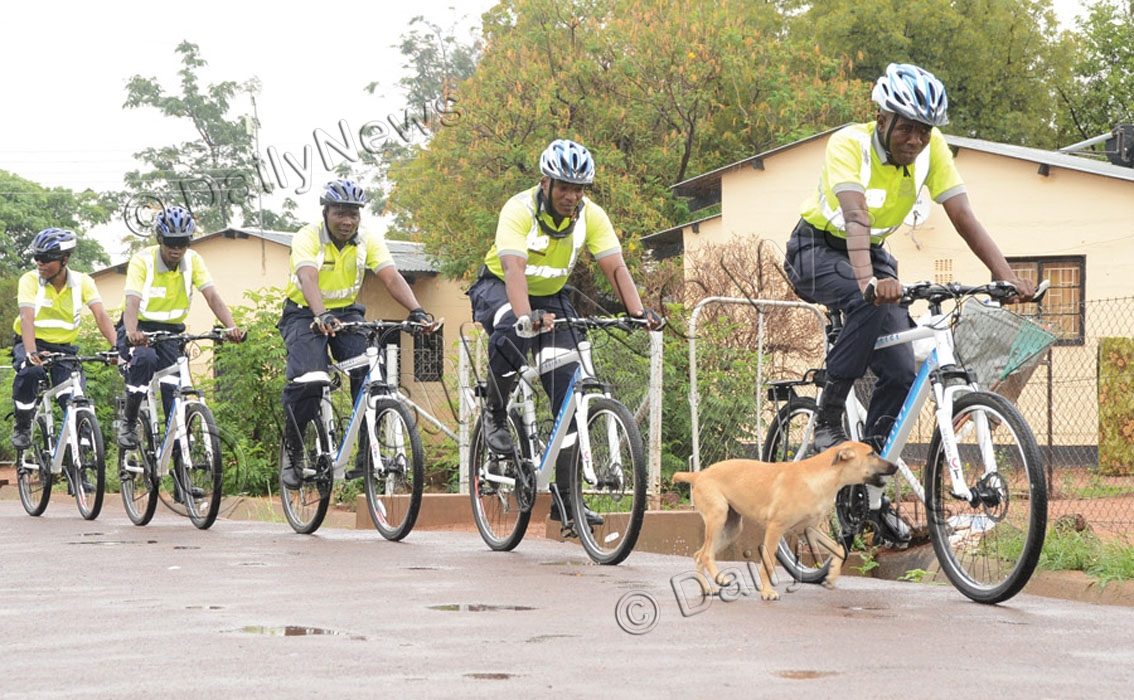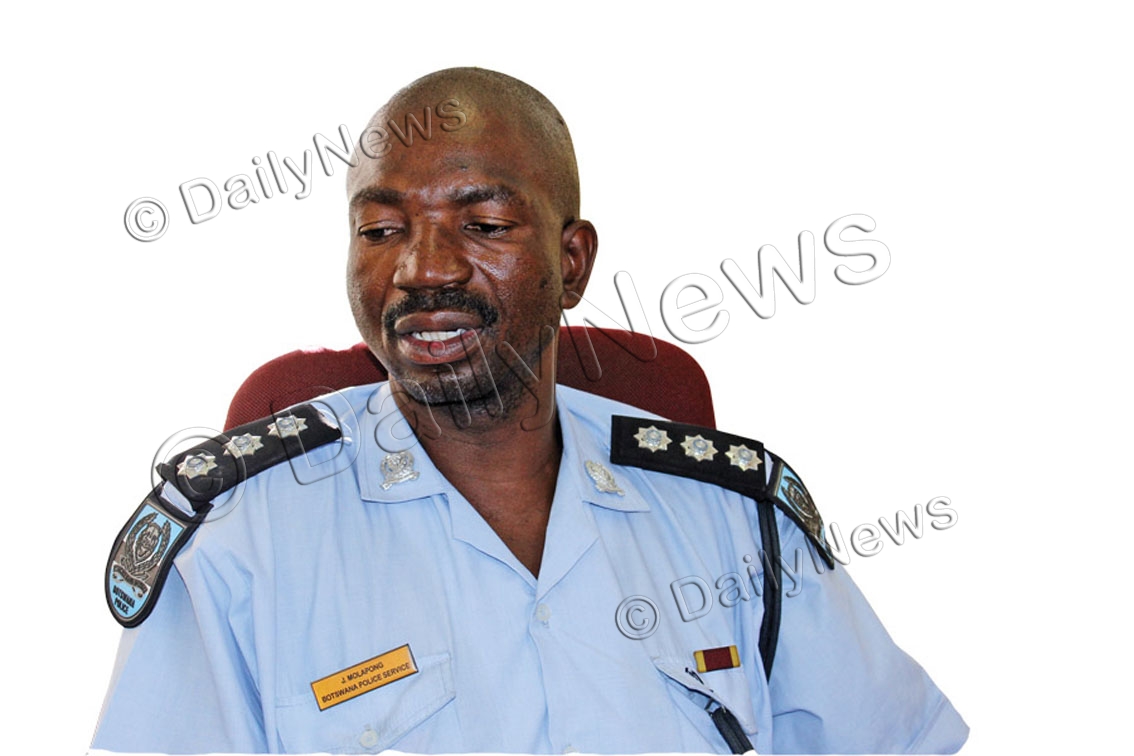When community polices itself
29 Jun 2015
Its objectives are, among others, to forge close cooperation between communities and the police as well as to implement campaign strategies on togetherness in the handling of crime occurring around neighbourhoods.
According to the initiative preamble, its other aims are to create awareness on crime prevention as a shared responsibility as well as to use Ipelegeng volunteers to achieve cluster and crime prevention strategies. The initiative first kicked into action on April 1, 2011.
With almost four years in existence, some of those who have seen the programme in action say its benefits are now being realised. Takatokwane assistant station commander, assistant superintendent Jacob Molapong, says since they started engaging volunteers, there has been improvement in crime prevention in their policing area.
“Part of the volunteers’ role is to patrol areas of their communities to establish a rapport through which they can better prevent or reduce the crime rate,” he says.
Molapong says cluster members are required patrol with police officers all the time.
However, he says, shortage of police officers sometimes makes such impossible.
As such, they have orientated volunteers to always assess the situation and call for police backup when they encounter a situation that needs professional handling.
“Most of the time we advise them to only handle minor incidents as they are not trained police officers. This is done to protect them from any potential danger,” he says.
Molapong reckons volunteer patrols have been invaluable in combating criminal activities such as house break-ins.
“The fact that most volunteers are locals has worked well for us because they know all the corners of the village than police officers. When we look for suspects, they can sniff them out because they know people and relatives around where such suspects are likely to hide,” says an upbeat Molapong.
He also says such nurtured knowledge of the area has also made volunteers excel as informants, which has helped the police to nip criminal activities in the bud.
Molapong’s concern though, is that when volunteers patrol without police officers, they are not that effective because they are limited in as far as incidents they can handle.
“We have experienced such a challenge especially in settlements where there are no police officers. These volunteers will be operating without hands-on guidance,” he says.
On whether volunteers are given any formal training prior to starting work, Molapong says they only get “on the job training and orientation.”
Despite the challenges, Molapong says the advantages of the initiative overweigh the disadvantages, and that way it can be termed a success that authorities must continually improve.
Incidentally, Bogosi is one of the institutions that also handle criminal cases on a daily basis hence their partnership with police volunteers.
Meanwhile, about 40km from Takatokwane lies Dutlwe village, where Kgosi Motshegetsi Puleng also sings praises of the programme.
“This initiative has come in handy in addressing social ills such as alcohol abuse. Initially we used to try a lot of alcohol related cases as well as loitering and stock theft which have now gone down to a reasonable level. In the evening, the village would be noisy because of drinking joints that operated until late in the night,” says Kgosi Puleng.
He says since inception of the programme, the village becomes virtually silent as early as 9pm.
Kgosi Puleng’s only concern is lack of equipment for volunteers.
“I think as a way of bolstering their work they should be equipped with batons, torches and handcuffs in case of imminent danger,” says kgosi Puleng.
Kgosi Puleng cites an incident which occurred sometime last year whereby volunteers had to apprehend a man who had hacked his lover with an axe.
The benefits of cluster policing are not only felt by authorities, even ordinary villagers are feeling a sense of peace. One Lenyatso Lotolo of Khekhenye says as villagers they feel safer since the introduction of police volunteers.
He says small as his village is, petty criminal activities such as assault were a common occurrence in the past especially that most people spent much time at drinking spots.
Lotolo adds that even though the challenge has not been totally dispensed with, it is relatively much better.
“We cannot expect a village to be virtually free of petty crime but ever since these volunteers were introduced, such cases have become minimal. What is needed is to beef up their numbers because I think in Khekhenye, the volunteers are too few and they cannot cope with the population,” says Lotolo.
Further afield in Morwamosu along the Trans-Kalahari Highway, the golden touch of police volunteers has also not escaped the small village.
Kediretsemang Gakebalaole also attributes the strength of the volunteers to the fight against alcohol related incidences.
She says the fact that their attire is highly visible makes them stand-out and be noted while on patrols.
She is, however, concerned about their safety especially in a village with no street lights like her home village.
As the evening creeps in and most villagers prepare for a long and relaxing night, a police volunteer somewhere prepares for his night shit.
Even though he may not earn an attractive wage for his hard work, he is, nonetheless, determined to soldier on to keep his village safe, for such is the spirit of volunteerism. Ends
Source : BOPA
Author : Olekantse Sennamose
Location : Letlhakeng
Event : Interview
Date : 29 Jun 2015







